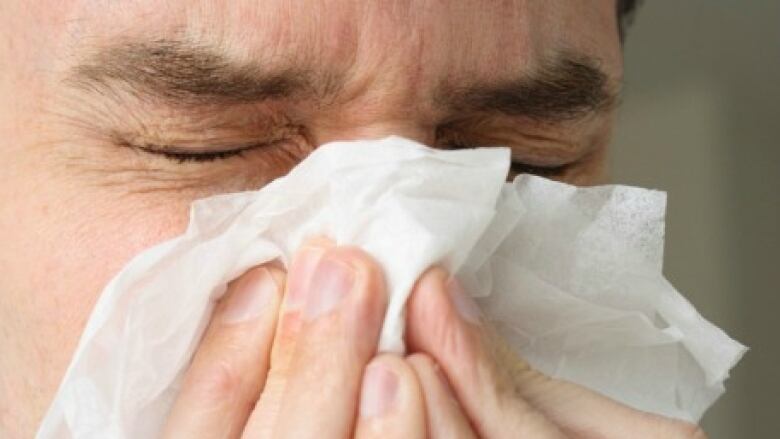Doctor's tips for navigating the flu zone
Try clear soup, acetaminophen and stay home, Dr. Peter Lin says

With flu cases on the rise in recent weeks, it's likely some people in your home, office or school have been coughing and sneezing.
"There was a big bump [in flu cases] over the Christmas holidays," says Dr. Peter Lin, CBC Radio's house doctor.
"I think that helped spray the virus around, because we all got together and we started touching and hugging and stuff."
So with several more weeks of flu season left to go, what's the best way to keep healthy or recover quickly?
- Sask. flu shot to cover 4 strains this season
- Pharmacists help with flu shots in Sask. — but at an added cost
Know your illness
Some people confuse a cold with the flu, Lin notes.
With a cold, the symptoms can be similar but, generally, are much milder.
When you have the flu, you're more or less knocked flat on your back with aches, respiratory problems and other symptoms.
If they last more than two days, see a doctor, Lin says.
"This year is going to be a little hard because it's the H3N2 version and that version is a little bit tough," he said.
Timing is everything
"If you're going to take medication, take it early."
To treat symptoms, acetaminophen is best (and not ASA), he said.
Even after symptoms subside, you can be spewing viruses around. Staying home is recommended until you're fully recovered.
Don't touch your face
The flu virus can't take hold if it is only present on your hands, Lin notes.
It has to get into your nose and lungs first. That's why it's important not to touch your face if you're in a flu-contaminated environment.
Soup isn't a bad idea
Soup is a good food to try when you're recovering from flu but go with clear soup, not the creamy variety, Lin says.